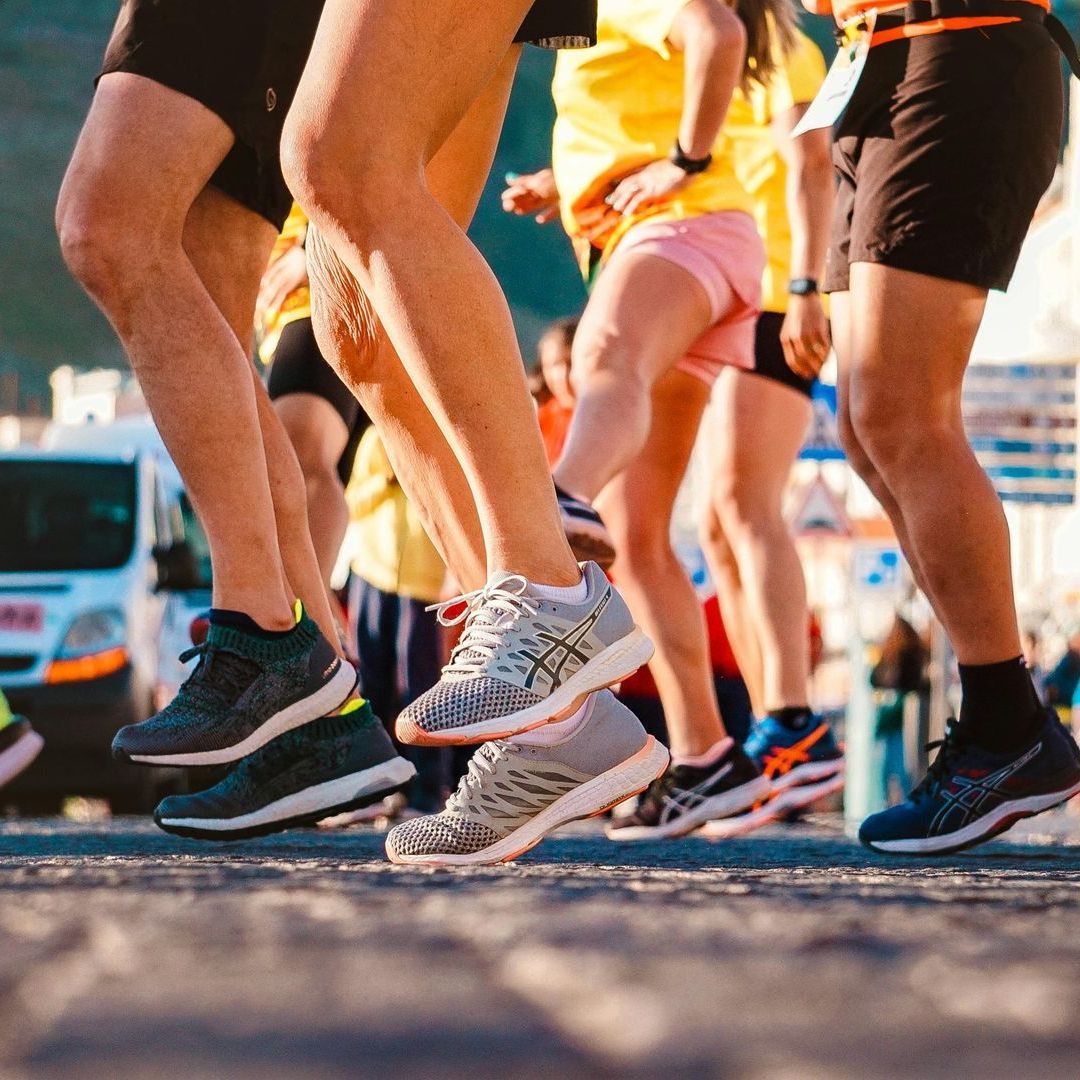OUR CARE SOLUTIONS
Allergies & Athletic Performance
Phoenix's Leading Experts in Allergy & Holistic Primary Care
Allergies and Athletic Performance:
How Allergies Affect Your Fitness and How to Manage Them in Phoenix
Athletes and fitness enthusiasts in Phoenix often face a unique set of challenges when it comes to allergies. From seasonal pollen to pet dander, allergies can significantly impact your ability to perform at your best. Whether you're training for a race or engaging in outdoor sports, understanding how allergies affect athletic performance is crucial for staying at the top of your game.

The Impact of Allergies on Athletic Performance
Allergic reactions can interfere with key components of athletic performance, such as respiratory function, endurance, and overall physical strength. Common allergens like pollen, dust mites, mold, and pet dander can trigger symptoms such as sneezing, congestion, and difficulty breathing, making it harder to focus and perform during physical activities. In more severe cases, allergies can lead to conditions like exercise-induced asthma, which directly affects an athlete’s ability to breathe properly during intense activity.
Managing allergies is essential for improving lung function, reducing inflammation, and boosting endurance. By addressing allergies effectively, athletes can breathe easier, stay energized, and enjoy their sports or workouts without unnecessary discomfort.
Understanding Allergy Symptoms and Their Impact on Exercise
It’s important to recognize that allergies are immune system responses to allergens, which can include things like pollen, pet dander, mold, and certain foods. In individuals with allergies, these substances trigger an immune response that leads to symptoms such as sneezing, congestion, and shortness of breath. When you’re engaging in physical activity, these symptoms can become even more pronounced, leading to reduced endurance and exercise capacity.
Three common allergy-related conditions that can affect athletic performance are:
- Exercise-Induced Asthma (EIA): This form of asthma is triggered by physical activity, causing wheezing, shortness of breath, and chest tightness. It can limit exercise tolerance and hinder performance.
- Exercise-Induced Anaphylaxis (EIAn): Though rare, exercise-induced anaphylaxis is a serious allergic reaction that can occur during or after exercise. Symptoms can be life-threatening and require immediate emergency care.
- Exercise-Induced Urticaria (EIU):
This condition causes hives, often triggered by physical exertion. It can lead to itchy welts on the skin and may vary in severity.
Seasonal Allergies and Outdoor Sports in Phoenix
Phoenix's unique environment, with its abundant plant life and seasonal pollen, can pose significant challenges for athletes. Those who train or compete outdoors are exposed to environmental allergens that can worsen allergy symptoms. Common triggers during the Arizona allergy season include:
- Ragweed
- Mugwort
- Bermuda Grass
- Tree Pollen
- Sagebrush
These allergens can cause discomfort and even lead to exercise-induced asthma, nasal congestion, and sneezing, which can interfere with outdoor activities and workouts.
When To See A Doctor
If allergies are holding you back from achieving your athletic goals, Dr. Kevin Chan and the team at Pineapple Health are here to help. We’ll work with you to develop a personalized treatment plan that targets your specific allergy triggers, helping you breathe easier and perform better.
For more information or to schedule your consultation, call Pineapple Health at
480-961-2366 or fill out our online form. Let us help you take control of your allergies and enhance your athletic performance today!
Hay Fever & Outdoor Fitness
in Phoenix, Arizona
Hay fever, or allergic rhinitis, is a common issue for athletes, especially those who enjoy outdoor activities like running, hiking, or attending events. Symptoms of hay fever, including nasal congestion, sneezing, and itchy eyes, can significantly affect your ability to enjoy sports and stay active.
Managing hay fever is important for improving athletic performance, as it helps reduce symptoms and enhances your ability to participate in outdoor activities with ease. Whether it’s running, hiking, or simply enjoying a day outdoors, effective allergy treatment can make a big difference in your overall experience.

Allergy Testing & Treatment
in Phoenix, Arizona
At Pineapple Health, we understand the impact allergies can have on your athletic performance. Dr. Kevin Chan specializes in allergy treatment for athletes and fitness enthusiasts in Phoenix. Through personalized allergy testing and treatment plans, we help you manage your symptoms and optimize your physical capabilities.
Allergy Testing
in Phoenix, Arizona
Skin Scratch Testing
Small amounts of various allergens are applied to your skin to check for reactions. This test helps identify environmental allergens like pollen & mold.
Blood Testing
A simple blood test is used to measure IgE antibodies, which help identify environmental and dietary allergens that may be affecting your health.
Allergy Treatment
in Phoenix, Arizona
Immunotherapy
(Allergy Shots)
Allergy shots involve receiving small doses of allergens over time. The treatment is gradually increased, allowing your immune system to build tolerance and reduce allergic reactions. This can be a long-term solution for people with persistent allergies.
Sublingual Immunotherapy
(SLIT)
Sublingual immunotherapy is an alternative to allergy shots. It involves placing a dose of allergen under the tongue, where it is absorbed into the bloodstream. This method is more convenient for those who prefer to avoid injections.
Medications
We may also recommend medications, such as antihistamines, decongestants, or nasal sprays, to help manage symptoms while undergoing allergy treatment.
Get Allergy Treatment
in Phoenix for Better Athletic Performance
If allergies are holding you back from achieving your athletic goals, Dr. Kevin Chan and the team at Pineapple Health are here to help. We’ll work with you to develop a personalized treatment plan that targets your specific allergy triggers, helping you breathe easier and perform better.
For more information or to schedule your consultation, call Pineapple Health at
480-961-2366 or fill out our online form. Let us help you take control of your allergies and enhance your athletic performance today!
FAQs
What is the Cost of Allergy Treatment in Phoenix, AZ
The cost of allergy treatment in Phoenix can vary based on the type of allergens and the treatment methods used. Many patients benefit from a combination of allergy testing and immunotherapy. Most insurance providers cover these treatments, but costs can vary depending on your insurance plan and treatment frequency.
During your consultation, we will discuss your specific treatment options and provide a detailed breakdown of the costs involved, ensuring that you receive the most cost-effective solution that fits your needs.
Will my insurance cover allergy testing and treatment?
Insurance coverage for allergy testing and treatment can vary depending on your insurance policy and provider. Most health insurance plans cover allergy testing and treatment as part of their benefits, while others may require pre-authorization or impose deductibles and copayments. It is important to consult your insurance provider to understand your coverage options and any out-of-pocket expenses that may apply.
Why are my allergies getting worse?
Environmental factors, such as increased exposure to allergens like pollen or year-round exposure to dust mites, can trigger a heightened immune response. Additionally, changes in indoor environments due to air pollution or increased use of carpeting and upholstery can contribute to worsening allergies. Seasonal changes, so-called “allergy season”, mean that fluctuations in pollen and other allergens can also lead to an exacerbation of allergy symptoms. In the state of Arizona, there are two allergy seasons which include springtime and fall, but some patients deal with allergies all year long.
How are allergies diagnosed?
Allergy diagnosis often involves a comprehensive evaluation of symptoms, medical history review, and allergy testing, such as skin prick tests or blood tests, to identify specific allergens.
What are the treatment options for allergies?
Allergy treatment options may include allergy medications (antihistamines, corticosteroids, decongestants), avoidance strategies, immunotherapy (allergy shots), or lifestyle modifications.
Is immunotherapy only used for environmental allergies?
No, immunotherapy can treat various types of allergies, including environmental allergies (pollen, dust mites, etc.), pet allergies, mold allergies, and certain food allergies. The specific allergens targeted during immunotherapy will be determined based on the individual’s allergies.
Can immunotherapy help with asthma?
Yes, immunotherapy can be beneficial for patients with allergic asthma. Allergy treatment can help reduce airway inflammation and improve asthma control in individuals with allergic triggers.
Can allergies be prevented?
While it is not always possible to completely prevent allergies, certain strategies can help minimize exposure to allergens and reduce the severity of allergic reactions. These may include keeping indoor environments clean, using air filtration systems, avoiding known triggers, and following proper medication management.
Still have a question?
If you have any questions about allergies, treatment options, or anything else, please don't hesitate to reach out. We're here to help and can assist with any inquiries or schedule a consultation with one of our allergy specialists.
Schedule Your Allergy Consultation in Phoenix.
If you’re struggling with allergies, it’s time to take control of your health. At Pineapple Health, we are here to help you find lasting relief.
To schedule an allergy consultation, call us at (480) 961-2366 or fill out our online form. Our team will work with you to find the best approach to manage your allergies and improve your quality of life.

